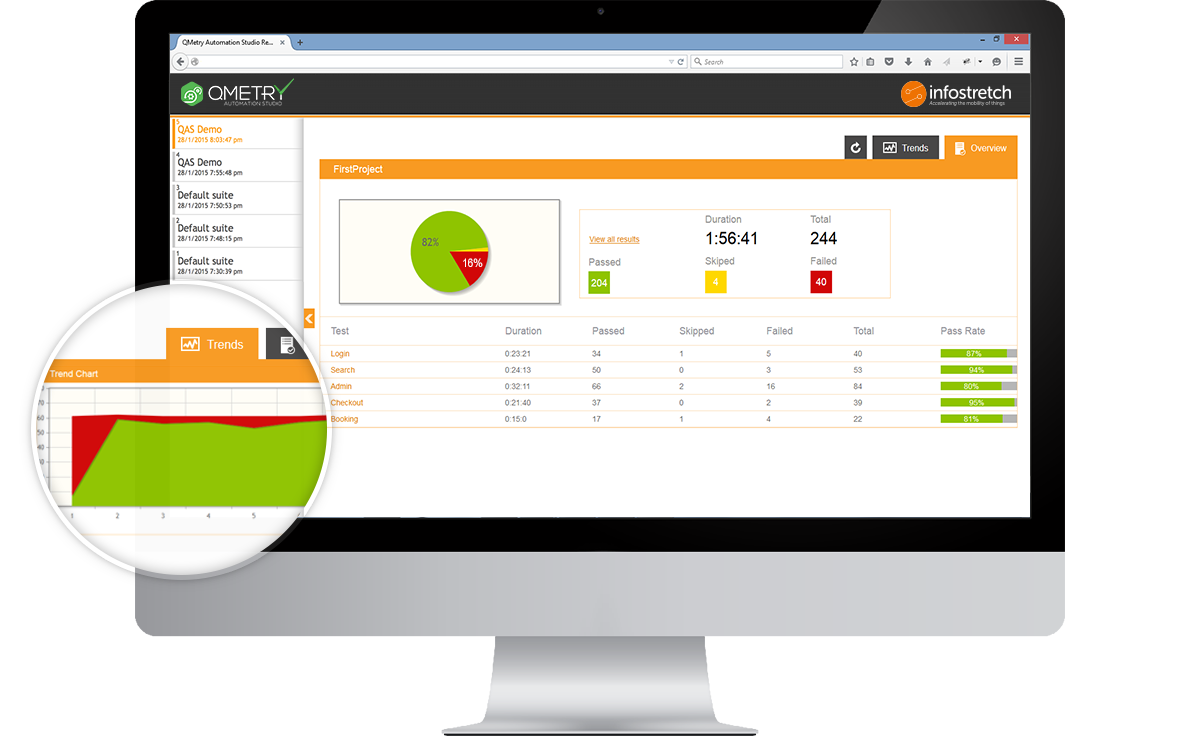QMetry Automation Framework Key Benefits

Streamlined / Structured Approach
Abstracting the technical implementation away from the operational components
Reusable Test Assets
Highly maintainable and repeatable tests that utilize reusable test assets, proper modularity and semantic structure.
Increased Collaboration with Manual Testers, Developers and Business / Project Owners
Behavior-driven and keyword-driven test authoring.
Data-driven Testing
Run a single test case against multiple test data sets provided through CSV, XML, JSON, Microsoft Excel or your own database.
Unified Scripting Across Mobile Platforms
The right tool for web, mobile (including native, hybrid, and mobile web) and web service test automation solutions.